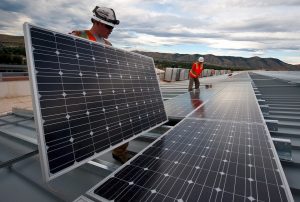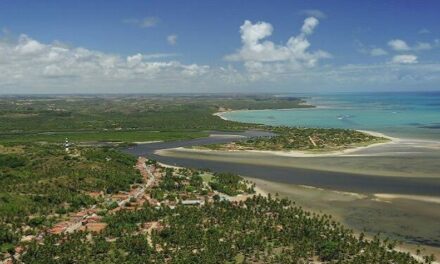 Craig Cassarino has spent decades focused on the sustainability of resources in both New Hampshire and Brazil, so it’s fitting that now, as the Granite State’s commercial consul for Brazil, he serves as a resource for businesses interested in doing business with countries of South America.
Craig Cassarino has spent decades focused on the sustainability of resources in both New Hampshire and Brazil, so it’s fitting that now, as the Granite State’s commercial consul for Brazil, he serves as a resource for businesses interested in doing business with countries of South America.
As commercial consul, Cassarino – a partner in Leonardo Technologies Inc. of Bedford, works with the International Trade Resource Center to help New Hampshire companies connect with the agents, distributors, financing sources, government agencies and individuals needed to do business in Brazil – the largest industrial manufacturer in South America. Cassarino works with ITRC on a number of initiatives, including arranging a trade mission to Brazil, Argentina and Chile in the spring. The mission will give companies the chance to meet South American companies and learn about what it takes to do business there, he said.
“I’ve worked with ITRC before on past trade missions and their participation helped create the best response ever,” Cassarino said. “The ITRC staff is terrific–they respond quickly when it’s needed, yet they also understand that building an international business takes time. Each company needs to develop a resource base as well as an understanding of the country’s culture”.
Cassarino has developed an in-depth understanding of Brazil’s culture over the past decade and a half, and he sees connecting cultures as an important aspect of his work as commercial consul. As part of this effort, Bahia, one of the 26 states in Brazil, is being considered for status as a sister state with New Hampshire (* and Salvador, the capital, as the city sister with Los Angeles).
 He first visit to Brazil was in 1989 after selling a New Hampshire-based recycling company; he quickly felt so at home that he moved to Sao Paulo. He saw that Brazil, which has the seventh-largest economy in the world, needed assistance in environmental engineering, renewable energy and recycling – his areas of expertise, and that Brazilians were interested in partnering with U.S. firms in order to gain the needed technology and financing.
He first visit to Brazil was in 1989 after selling a New Hampshire-based recycling company; he quickly felt so at home that he moved to Sao Paulo. He saw that Brazil, which has the seventh-largest economy in the world, needed assistance in environmental engineering, renewable energy and recycling – his areas of expertise, and that Brazilians were interested in partnering with U.S. firms in order to gain the needed technology and financing.
Over the following seven years, he made many contacts in Brazil and worked with the U.S. commercial consul to help match Brazilian projects, primarily in recycling, with U.S. companies. He also met and married his wife, Catita, who is Brazilian. In 1996, Cassarino was invited to join a New Hampshire firm, so he and Catita moved back to the Granite State. One of the first projects he focused on was in Brazil. Since then, he has returned frequently to Brazil, which has enabled him to deepen his understanding of the culture while further keeping abreast of developments and opportunities. He’s often accompanied by Catita and their kid, Caio, who welcome the chance to visit with family and friends in Brazil.
“I love entrepreneurship and helping businesses succeed, especially when two cultures and countries are involved,” Cassarino said. “When it works, both countries benefit. For example, energy is a hot topic in Brazil, and the country will probably be energy-independent by the next year. It’s also one of the leading countries in the world interested in the development of alcohol-based fuels. If we can bring a New Hampshire-based company’s technology for developing biofuel to Brazil, it can create jobs and educational opportunities in Brazil as well as generate growth for the company back here in the States. Brazilian farmers could grow the crops necessary to produce the fuel, an educated refinery workforce would need to be developed on the ground, and Brazil would be a potential market for the fuel. This type of situation speaks to sustainability at every level.”
According to Cassarino, it’s not as difficult as might be imagined to enter the international marketplace in Brazil. And while companies might find it difficult to do on their own, the guidance and assistance of the ITRC, Cassarino and others can help them make the transition successfully. As commercial consul, he said, “not only do I have the opportunity to help make a positive impact, in a way I’m creating a legacy for my son. If we can develop a relationship between U.S. (specially New Hampshire) and Brazil, he will be a part of it and will have his own opportunities to make a difference.”














